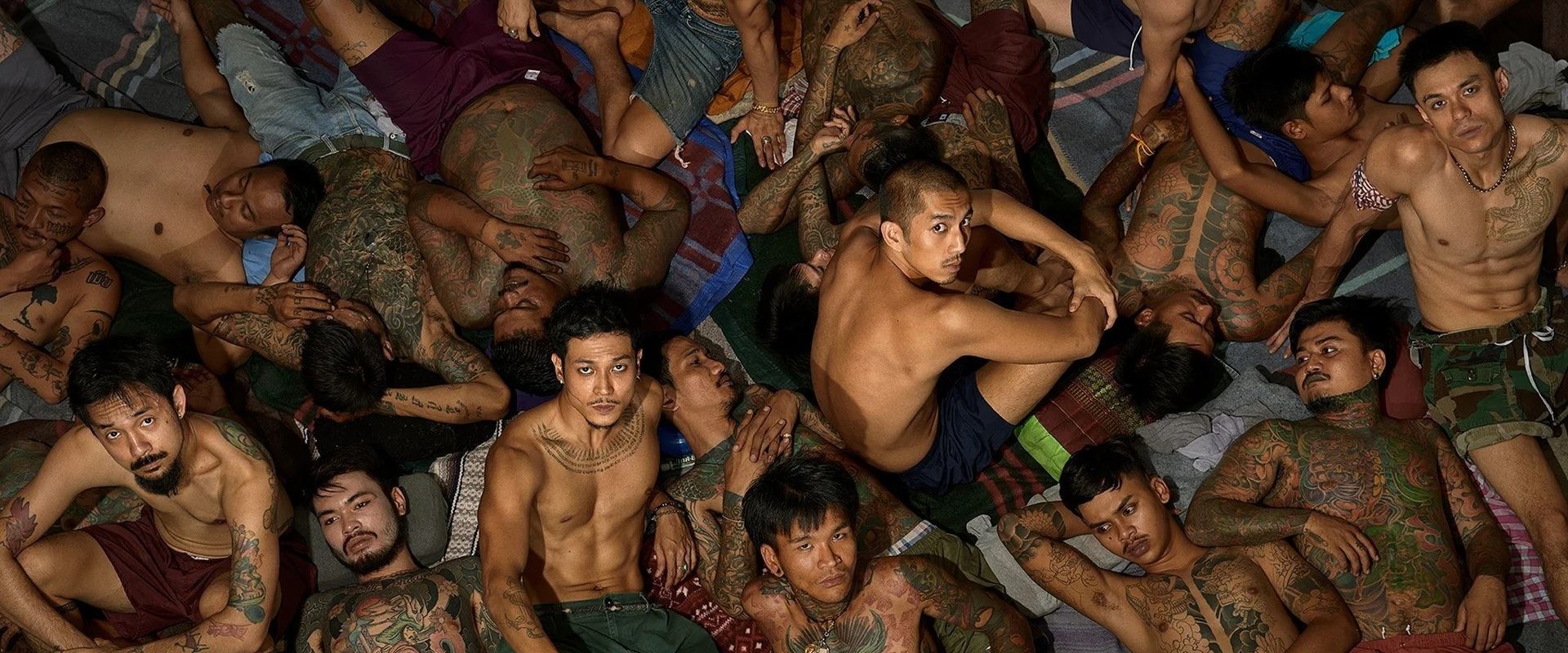There are films that scrape so close to the bone—so unflinching in their autopsy of the young and desperate—that you exit not just shaken, but wobbled, a little raw around the soul. In Youth We Trust, Puttipong Nakthong’s feverish plunge into the bruising world of teenage lockup, is this kind of movie: a tightly-wound cry set behind the gritty cinderblocks of juvenile detention, a kind of Bangkok Scum cooked in the pressure cooker of loyalty, despair, and institutional doom.
Nakthong, who has already made a habit of rifling the underbellies where adolescence congeals into violence, now storms the gates of the detention center itself—and what an inferno he finds. This is no slick, hand-wringing plea for reform: we’re thrown bodily into the labyrinth of adolescent hierarchy, where your accent or birthplace can condemn you faster than any criminal record. It’s not simply a prison; it’s a proving ground, rigged from every angle, where bullying is as much a survival skill as it is a vice.
At the bruised center of Nakthong’s vision is Puek, a role inhabited with quietly volcanic force by Nat Kitcharit. Puek is society’s orphan—rendered “dirty” by the memory of a mother’s scandal and then fed, like reckless kindling, to the wolves. The arc here is no sentimental invention: bullied until he bullies, a victim until he bites, he’s chewed up and spat into child jail, a blank face smacked by fate. Opposite him is Beer (Arak Amornsupasiri), the swaggering, sad-eyed alpha—every block’s has-been or would-be tyrant—who radiates the long-rehearsed intimidation of prison yard royalty. One confrontational brawl, of course, and the pack’s pecking order is set.
But then—like a black market handshake in a dark stairwell—there’s Bang Gus (Itkron Pungkiatrussamee), who slithers through the cracks in everybody’s armor. He’s the kind of half-sociopathic mentor whose boot-in-the-face loyalty feels one step removed from mercy. Their alliance feels less like friendship, more like a provisional ceasefire in a world where the only law is tit-for-tat. The way Nakthong steers this triangle is quietly electric; you get that creeping sense that these kids, in learning to survive, are slowly learning to rot from the inside.
Don’t let the bleakness fool you—there’s real heat thrumming in the supporting cast. Bhumibhat Thavornsiri, as Fluke, shoulders onto the screen with a performance so jagged and raw, you half-wonder if he’s going to dissolve right then and there. A boy cast out for the crime of difference (God help him, he’s gay in a world that makes that an executable offense), Fluke is the canary in the detention coal mine: his suffering is at once singular and universal, the kind that stains every shiv and sneer with a dull, hopeless ache. And then there’s Par (Arachaporn Pokinpakorn), the ghostly tether to life on the outside, who flits through the shadows with a longing that feels almost unbearable.
Nakthong’s eye is unerring, a kind of cruel, luminous empathy. The camera doesn’t gawk. It glides—not with the chilly detachment of clinical documentary, but with an intimacy that punctures your spleen. An opening montage: a homegrown shiv forged, a flashback to innocence cracked and discarded—already, we know this is not a film for the squeamish or the sentimental. The sound design—all echoing slaps and muffled sobs—wraps you in a cocoon of tension. You feel every bruise, every whispered threat ricocheting off the cement.
He has his repertory company, too: Benjamin Joseph Varney, Arak Amornsupasiri, Nat Kitcharit, and Itkron Pungkiatrussamee—actors who seem to sweat this universe if you pricked them. The way they inhabit these characters, not playing victims or monsters but breathing, desperate kids teetering on the edge, is the film’s great motor.
What lingers, though, are not the cheap shocks of violence—though there are plenty—or the almost exhausting parade of miseries, but the uncomfortable throb of recognition. Nakthong is telling us: in this world, the line between monster and martyr is as thin as a cell wall. There are no innocents, only those not yet bloodied. Like Scum (if Alan Clarke had a hot-blooded Thai cousin), it’s less an indictment of individual evil than a howl of rage against the machinery that turns children into soldiers in a war they never signed up for.
And perhaps that’s the film’s ache—that in laying bare the cycles of violence, the failure of anything approaching rehabilitation, it scalds its viewers with an almost gothic pessimism. No comic relief here, and little hope. Even the fleeting moments of camaraderie are fraught, held together by need and desperation rather than anything as grand as trust. If you find yourself gasping for an ounce of levity, that’s not by accident—it’s by merciless design.
But what else is left? In its darkness, in its refusal to soften the wallop of institutionalized cruelty, In Youth We Trust earns its bleakness honestly. It’s a howl, not a sermon—every character dancing at the edge of collapse, every frame a gasp for air in a place designed to choke. And yet, somehow, there are still flickers of grace—a gesture, a look, the stubborn, battered hope that maybe, just maybe, the world is not finished with them yet.
In the end, Nakthong leaves us marooned in empathy’s undertow: haunted by these half-destroyed kids, angered by the systems that chew them up, wondering (as always) who will be next. No easy answers, no Hollywood uplift—just the simple, harrowing fact that these lives, battered as they are, are still heartbreakingly worth it.


